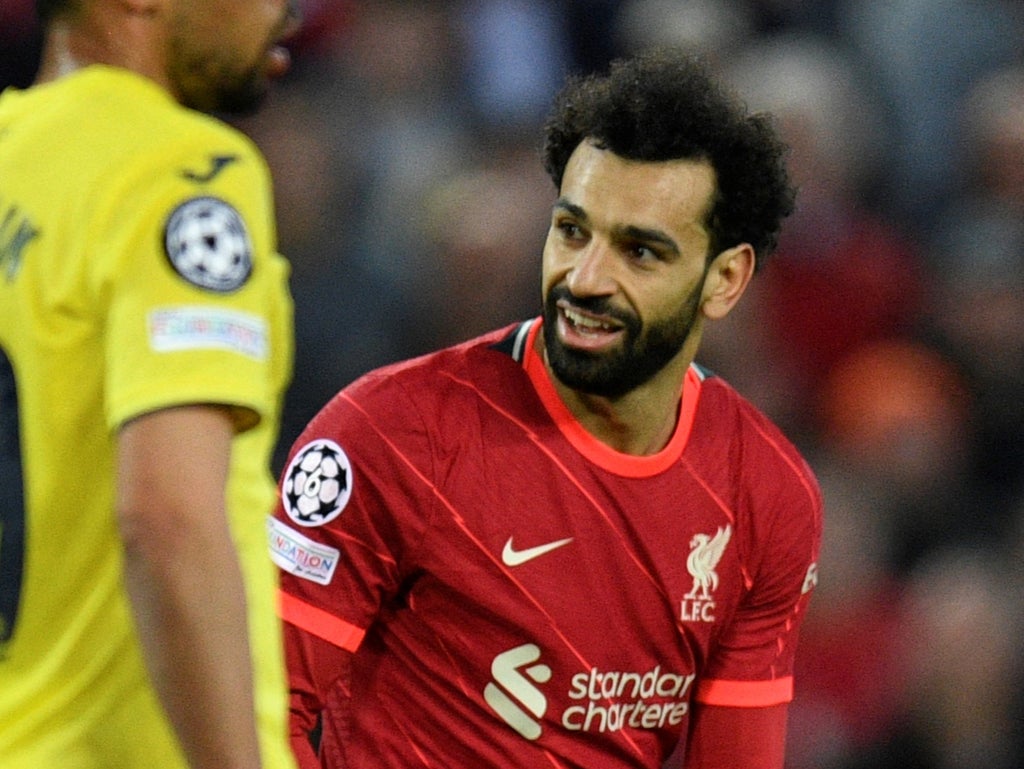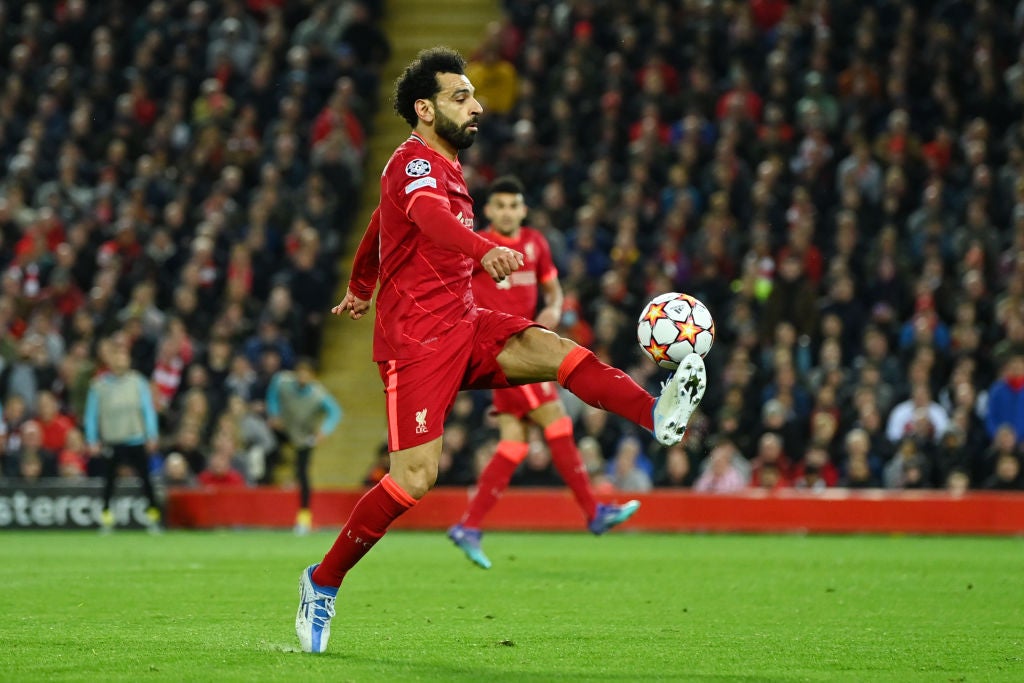
It was the third Anfield Champions League semi-final of Mohamed Salah’s time at Liverpool. It was also the second. In their own way, the first two had been defined by him. Rewind four years and perhaps the first phase of Jurgen Klopp’s Liverpool reached its zenith in a blistering burst of five goals in 34 minutes in the last four of the most prestigious competition of all. Salah scored the first two against his old club Roma and assisted the next two.
Fast forward 12 months and he was sitting in the crowd, wearing a T-shirt that summed up Liverpool’s ethos. The man who never gets injured was injured but the message on his chest – “never give up” – was taken to heart by his teammates. Salah was the spectator who was upstaged by Divock Origi, the destroyer of Barcelona.
It may now be an exaggeration to brand the Egyptian the scourge of Villarreal. His influence was more indirect. A player going at a goal a game for much of the season saw his relatively barren spell continue. And yet when Liverpool scored twice in three minutes, allowing dreams of a final in Paris to become realistic, Salah had an indirect influence twice.
Many a Liverpool goal stems from their right flank. The opener was a strike with a difference, Jordan Henderson looping a run around Salah as they played a one-two, his cross deflecting off Pervis Estupinan and, despite a desperate attempt to claw it away by Geronimo Rulli, nestling in the net.
Henderson set off in celebration, arms outstretched, in the manner of a man who had scored the goal of his life. More prosaically, it was an Estupinan own goal, denying Salah an assist.
For two minutes, anyway. Then he poked a pass forward, weighted perfectly for Sadio Mane to prod in Liverpool’s second.
Rewind three years and the Egyptian’s reluctance to pass to the Senegalese prompted first a gesture of annoyance and then more widespread controversy. Go back a week and Graeme Souness was branding Salah the greediest footballer he had ever seen.
And yet, even as his goals have become relative rarities, he has spent some of April creating. It was his dinked cross that Andy Robertson headed in to break the deadlock in the Merseyside derby. This was his fourth assist of the month, and a second for Mane.
There could have been more. As Villarreal held out before half-time, Salah’s whipped cross was headed wide by Mane, getting his angles all wrong. For the Egyptian, whose only open-play goals since February have come against Manchester United, there was a now-familiar tale of frustration and near-misses. A trademark curler cleared the bar. A volley from Trent Alexander-Arnold’s cross was skied.
Yet if that night against a hapless United looks still more of anomaly, one of Salah’s great strengths is his persistence. It is a characteristic Klopp looks for and a reason why Luis Diaz seems such a natural fit for Liverpool.
And it always offered hints that Salah could be Liverpool’s trump card. Estupinan, one of approximately 208 footballers who have been on Watford’s books in the past few years, albeit one who never actually played for Watford, may have sensed theirs was an unfair contest. After Salah glided into space once too often, the Ecuadorian resorted to tugging him back to collect a caution.

Salah twice eluded him in the second half by occupying the inside-right channel; each brought Liverpool a goal. His own ledger only stands at three in 13 games, but a combined goals and assists chart for the season shows Salah on 44, a freakish number.
In autumn, when he had arguably never played better, the Liverpool fanbase united to proclaim Salah the world’s best player. As a former manager of Robert Lewandowski, Klopp may have had divided loyalties. Each may have been leapfrogged since then. In the Champions League’s knockout stages, Karim Benzema is pressing an irresistible case for that status. But of all the candidates, the Liverpool winger is likeliest to be found at the Stade de France on 28 May.
It would complete another trilogy. Salah’s is a tale of two Champions League finals, of the Sergio Ramos-inflicted injury in 2018 and the early penalty in the 2019 win over Tottenham.
But if Phil Neal’s status as the only Liverpool player to score in two European Cup finals could be under threat, Salah instead has the potential to be goal-maker on such stages.







